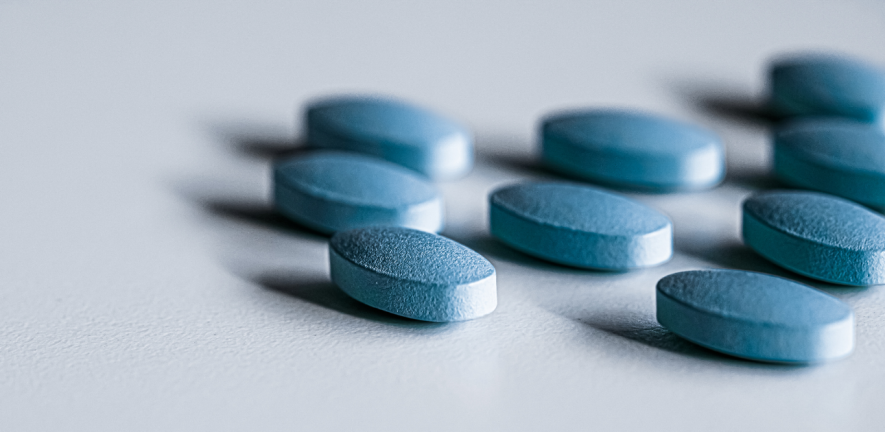Fixing Accountability for Avoidable Tragedy in Gambia: Lessons for Indian Regulators

Image for representational purpose. Credit: The Leaflet
On October 12, Haryana Health Minister, Anil Vij said that the state government of Haryana had decided to completely halt all manufacturing activities by Maiden Pharmaceutical Limited, a firm based in Sonepat, Haryana, for manufacturing and testing drugs in violation of rules. The Department of Food and Drugs Administration (‘FDA’), Haryana, reportedly issued a notice under Rule 85(2) of the Drugs and Cosmetics Rules, 1945 to the firm asking why the firm’s manufacturing licence should not be suspended or cancelled on account of contraventions found during the inspection ordered by the Central Drugs Standards Control Organisation (‘CDSCO’), the national regulatory authority for cosmetics, pharmaceuticals and medical device.
The state government’s drastic move against the company follows the World Health Organization (‘WHO’) issuing a Medical Product Alert for four “contaminated” cold and cough syrups manufactured by Maiden Pharma Ltd. on October 5. The firm is licensed by the Haryana Drugs Controller.
The consumption of these medicines is reportedly linked to the deaths of more than 66 children in The Gambia, and has been termed as “one of the worst such incidents involving drugs from India”.
According to the WHO, laboratory analysis of samples of each of the four products confirms that they contain ‘unacceptable’ amounts of diethylene glycol and ethylene glycol as contaminants. Diethylene glycol and ethylene glycol are toxic to humans when consumed beyond certain levels and can prove fatal.
In a bizarre claim, a press note, issued by the Press Information Bureau on October 6, has disclosed that the Haryana Drug Controller had given licences to the Maiden Pharmaceutical, only for export of these four drugs only to the Gambia, and not for manufacture and sale in India. “It is a usual practice that the importing country tests these imported products on quality parameters, and satisfies itself as to the quality of the products before the importing country decides to release such products for usage in the country”, the Union Government has claimed, in an effort to absolve any responsibility on the part of the State regulator.
Moreover, the emphasis by the Union Government on the fact that the licence was granted to the company only to export the medicines in question, and not for use in India, is shocking as the same suggests that the standards for compliance, when it comes to licensing, are not rigorous in the case of exports, or that the lives of those abroad who are likely to consume such drugs, not permitted to be distributed or sold in India, do not matter.
The Union Government has further disclosed that as per the tentative results received by the WHO, out of the 23 samples of the products under reference which were tested, four samples have been found to contain Diethylene Glycol/Ethylene Glycol. It has also been informed by the WHO that the certificate of analysis would be made available to the WHO in the near future, and the WHO would share it with the Indian regulator. The exact one-to-one causal relation of death has not yet been provided by the WHO to the CDSCO, the Union Government has claimed.
The samples of the drugs were sent for testing to a regional drug testing laboratory by the CDSCO and the results of such testing would guide further course of action, the Union Government has added.
According to reports, the Union Health Ministry constituted a four-member technical expert committee on Wednesday, to examine and analyse adverse event reports, and advise the government on future course of action.
Experts’ views
Srinivasan, of the not-for-profit organization, Low Cost Standard Therapeutics, and Co-Convenor of the All India Drug Action Network, an independent network of several non-government organisations, explaining the role of state drug regulatory authorities in granting permission for the manufacture and distribution of drugs, told The Leaflet: “The role of the regulatory authority, as far as manufacturing licence is concerned, is to approve a particular manufacturing process submitted by the manufacturer. The manufacturer must stick to the manufacturing process approved by the Drug Controller.”
According to Srinivasan, when applying for a manufacturing licence, detailed information must be given about formulating a particular medicine in a Master Formula Card. “No regulatory authority, unless careless, would have given approval for the manufacturing licence of a syrup involving the use of Diethylene Glycol or Ethylene Glycol – as they are known to be toxic. Once the licence is given, a regulator does not have real-time control over what the manufacturer is making or exporting. The manufacturer is expected to follow the rules as per the conditions given in the licence, that is, the onus is on the manufacturer to produce quality drugs once approval is given. Of course, the regulator using market intelligence available to him can pick samples from the manufacturer’s premises and/or retail outlets.” he added.
Further, Srinivasan explained as follows: “In manufacturing any drug, where there may be ten or more items going into it, testing needs to be done of each of them before formulating them into a syrup or a tablet. Therefore, the manufacturer should have done prior testing of the solvent.”
In the present case, Srinivasan opined that the manufacturer could have used a non-pharma grade solvent for the formulation of the syrups – the non-pharma grade solvent may have had unacceptable levels of diethylene/ethylene glycol. In any case, the solvent should have been tested routinely before use in the syrup, and the resulting test report would have brought out this fact, but the manufacturer chose to ignore it, or the testing per se could have okayed the solvent when it should not have been, he added.
As the next step is the role of the regulatory authority, especially now after the deaths have occurred, Srinivasan said that firstly, an investigation needs to be done on the issue, which in this case means that the suspect solvent is to be identified, and the solvent’s manufacturer’s premises are visited and their records studied. He emphasised that the regulator must identify all the other syrup manufacturers that have received the suspect solvent, recall their products and take action against them.
Secondly, Srinivasan said, if the manufacturer is found to be negligent, the law must be followed in prescribing the punishment. Thirdly, it must be examined whether the solvent manufacturer has appropriate manufacturing licences and other permits, he added.
According to him, although the primary responsibility is of the manufacturer to ensure compliance with standards and rules, regulatory oversight should have sent alarm bells to the drug regulator – especially as the manufacturer of the contaminated syrups has had a dubious record of manufacture, blacklisting, and warnings.
Section 27(a) of the Drugs and Cosmetics Act, 1940 penalises the sale or manufacturer of drugs deemed to be ‘adulterated’ under the Act, and provides for a punishment of imprisonment for ten years, which can be extended up to life imprisonment, and fine of not less than ten lakh rupees or three times the value of the drugs confiscated.
However, while the investigation by the CDSCO is still ongoing, it is reported that Maiden Pharma has been known to be a repeat offender in India. In 2011, the Bihar Government blacklisted the company for selling substandard medical products. In 2014, the company was one of the 39 dubious ones blacklisted by Vietnam.
In 2017, in a case filed by the drugs controller in Kerala, the Judicial Magistrate, First Class Court, Neyyattinkara, Kerala, imposed a fine of Rs. 1,000 on the unit. In 2018, in the case of Union of India versus M/s Maiden Pharmaceuticals Pvt. Ltd., the manufacturer was prosecuted under Section 27(d) of the Act for the manufacture or sale of drugs in contravention of the provisions of the Act.
The CDSCO has come under criticism for permitting Maiden Pharma to export despite the manufacturing unit’s poor record. It was issued a Certificate of Pharmaceutical Product, assuring overseas buyers of the manufacturer’s compliance with WHO’s Good Manufacturing Practices. “Given the wonderful track record of this company, does it not beg the question on what basis does the CDSCO issue this piece of paper?”, public health activist Dinesh Thakur remarked on Twitter.
Moreover, it is also reported that the state FDA department, responsible for conducting inspections and issuing licences for the manufacturing of drugs, is severely understaffed. With the Haryana drug control department reportedly functioning at a capacity of 35.84 per cent of sanctioned staff strength, it is doubted whether or not “routine and mandatory” inspections are conducted.
Thus, criminal neglect, punishable under Section 304A of the Indian Penal Code, is suspected on the part of both the pharmaceutical company as well as the state and national regulatory authorities.
Apart from the recent deaths in the Gambia, India is reportedly notorious for manufacturing and selling substandard drugs within the country as well. For instance, as recently as February 2020, at least nine children died in Udhampur, Jammu and Kashmir owing to the presence of Diethylene Glycol in cough syrups. A chargesheet is yet to be filed in the case. In a report by The Tribune, an analysis of CDSCO’s monthly alerts on substandard drugs shows that of the 10,062 samples taken, 306 were found to be substandard.
In a recent article in The Economic Times, Thakur and lawyer Prashant Reddy T point out the need for a binding drug recall mechanism in India. They emphasise that although the CDSCO has published recall guidelines, their non-binding nature is problematic in a country like India, with a highly fragmented regulatory structure in which every state and union territory has its own drug regulator, in addition to the central CDSCO.
Get the latest reports & analysis with people's perspective on Protests, movements & deep analytical videos, discussions of the current affairs in your Telegram app. Subscribe to NewsClick's Telegram channel & get Real-Time updates on stories, as they get published on our website.























